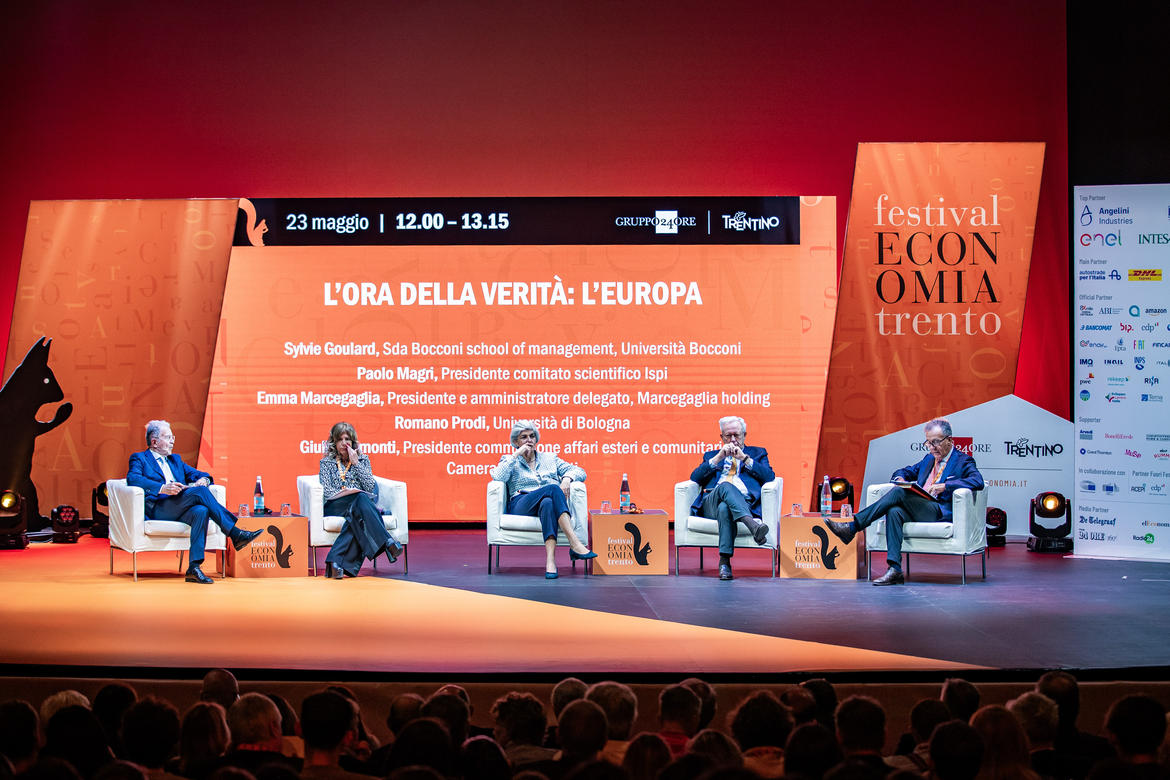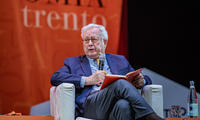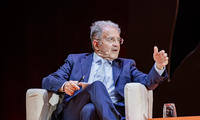
The discussion opened with Romano Prodi calling to revive the European ideal: “You can’t expect young people to feel passionate about Europe if we focus only on technicalities. We need visions that touch people’s hearts”. He also questioned the unanimity rule, which slows down EU decisions. Giulio Tremonti agreed, noting how excessive regulation hinders governance and economic competitiveness. Sylvie Goulard strongly defended the value of rules: “Without them, we’re left with brute force. Even at the time of the European Coal and Steel Community, institutions were needed to manage cooperation”. Emma Marcegaglia struck a middle ground: rules are essential to European identity, but many are counterproductive. “Because of these rules, it’s as if we had a 45% tax on our internal market”, she warned. “In 20 years, the US share of global GDP rose slightly to 27%, while the EU’s dropped from 26% to 16%. Bureaucracy is part of the issue. A weak, uncompetitive Europe can’t uphold its values”.
On defense, Prodi pointed out the imbalance between France, with nuclear capability and a UN Security Council seat, and Germany, whose massive investments will soon make it Europe’s leading military power. Goulard urged abandoning national perspectives in favour of collective European defense. On tariffs, Tremonti opened the discussion, highlighting rising global uncertainty. Marcegaglia emphasized that globalization hasn’t solved everything, but it has improved global conditions. For her, Europe now needs to take three paths: negotiate with the US (especially under a potential new Trump administration), diversify export destinations, and boost internal market demand.
The panel ended with two pressing issues. First, Gaza: Europe’s indecision is, in itself, a dangerous stance. Second, the Green Deal and climate crisis: progress has been made, but pragmatism must guide future steps. Europe must stay united if it wants to be strong enough to shape its future in a fragmented world.










